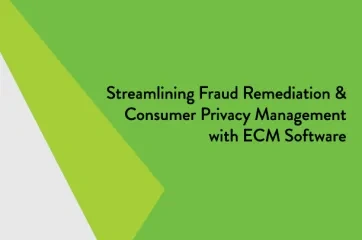What are Expiring Documents?
Expiring documents are those that are associated with expiration dates and must be regularly collected or updated to avoid exceptions. Once a document expires, it might also be considered a missing document until the exception has been resolved. Efficient resolution of document-related exceptions is an important process for financial institutions, especially those involved in commercial lending.
Examples of Expiring Documents at Financial Institutions
Although not every exception is connected to an expiring document, the following documents may have expiration dates that require tracking:
UCC filing records: To maintain their lien positions, lenders must file continuations before the expiration of their UCC filings.
Insurance documents: Ensuring that a customer or member’s assets are properly insured mitigates risk for the borrower and the lender.
Certificates of good standing: Financial institutions may occasionally request updated certificates of good standing to ensure commercial clients are properly registered to do business.
ACH (Automated Clearing House) authorizations: ACH authorizations can also expire depending on how they were initiated.
Inventory documents: As a current asset, new inventory documents may need to be collected depending on the financial institution’s relationship with the customer or member.
Proactively Taking Action on Expiring Documents
Waiting until a document expires could lead to unnecessary risk and potentially compliance issues. That’s why banks and credit unions must implement proactive steps to ensure updated documentation is obtained in advance of the expiration date. Specific steps may vary depending on the type of document. Collecting an updated insurance document, for example, may simply involve reaching out to the customer or member’s insurance company prior to renewal. UCC filings typically require filing a continuation on the correct state’s website.
Regardless of the situation, documentation must be collected and saved in the financial institution’s recordkeeping system. Once collected, exceptions can then be resolved in the tickler, spreadsheet, or exception management software. AccuAccount from Alogent, for example, offers built-in exception tracking and document imaging in one system. Reports help staff identify documents prior to expiration, providing increased transparency and efficiency.
Continue reading about AccuAccount or browse additional definitions from Alogent.














